The best SIM card with static IP
Fixed IP SIM Card for IoT
Need remote access to your device? With a fixed IP SIM card, you will always know your IoT device’s IP address and can connect instantly, from anywhere.

What is a fixed IP SIM card?
A fixed IP SIM card, also known as a static IP SIM card, gives your device the same IP address every time it connects to a mobile network, unlike regular SIMs that use dynamic IPs that change with each session. Whether public or private, this static IP makes it easier to access, monitor, or manage remote devices directly.
It’s especially useful for applications like security systems, industrial automation, or remote monitoring, where you need a consistent point of contact.

Why use a static IP SIM card?
A static IP allows you to maintain reliable connectivity and control, particularly when managing devices at scale.
- Remote access: Always know where to find your device. A fixed IP ensures you can reliably connect.
- Simplified security: Set up firewalls once and whitelist a known IP address, removing the need to update rules frequently.
- Better control: Monitor remote devices, troubleshoot quickly, and manage device fleets with confidence.
Better accessibility with
a fixed IP SIM card for IoT
Unlike traditional telecom providers, Onomondo is purpose-built for IoT connectivity, delivering superior flexibility, control, and cost efficiency.
Lower connectivity costs
Increased device uptime
Full control over your network
Simplified SIM management
Faster global deployments
Transparent network visibility
Top rated by industry experts




Get in touch
Interested to hear more about our IoT SIMs and global coverage? Get in touch by filling out the form or sign up for a free trial here.
Fixed IP SIM card FAQ
A fixed IP SIM card assigns a static, public IP address to each SIM card. This makes it easy to reach your IoT device from anywhere, without concerns about changing IP addresses or complicated network configurations.
For IoT devices like sensors, cameras, or routers, having a fixed IP allows stable remote access, real-time monitoring, and easier device management, especially when using firewalls or secure networks.
A dynamic IP address changes each time the device connects, while a fixed IP address remains the same. This consistency makes it easier to build reliable, always-on connections without additional workarounds.
Public static IP: Accessible over the internet. Ideal for remote device access without a virtual private network (VPN).
Private static IP: Used within a closed or VPN-connected network. This option is more secure but requires a gateway or virtual private network to access.
Static IP SIM cards can offer greater security, especially private fixed IP SIM cards combined with virtual private networks or firewalls. These configurations ensure devices are not directly exposed to the internet.
If the device supports SIM-based cellular connectivity (3G, 4G, LTE, or 5G) and the correct access point name (APN) settings are applied, a fixed IP SIM card will work. Common compatible devices include routers, gateways, sensors, and cameras.
An IP address is a unique identifier for a device on a network. It’s like a digital address that lets devices send and receive data across the internet or private networks.

